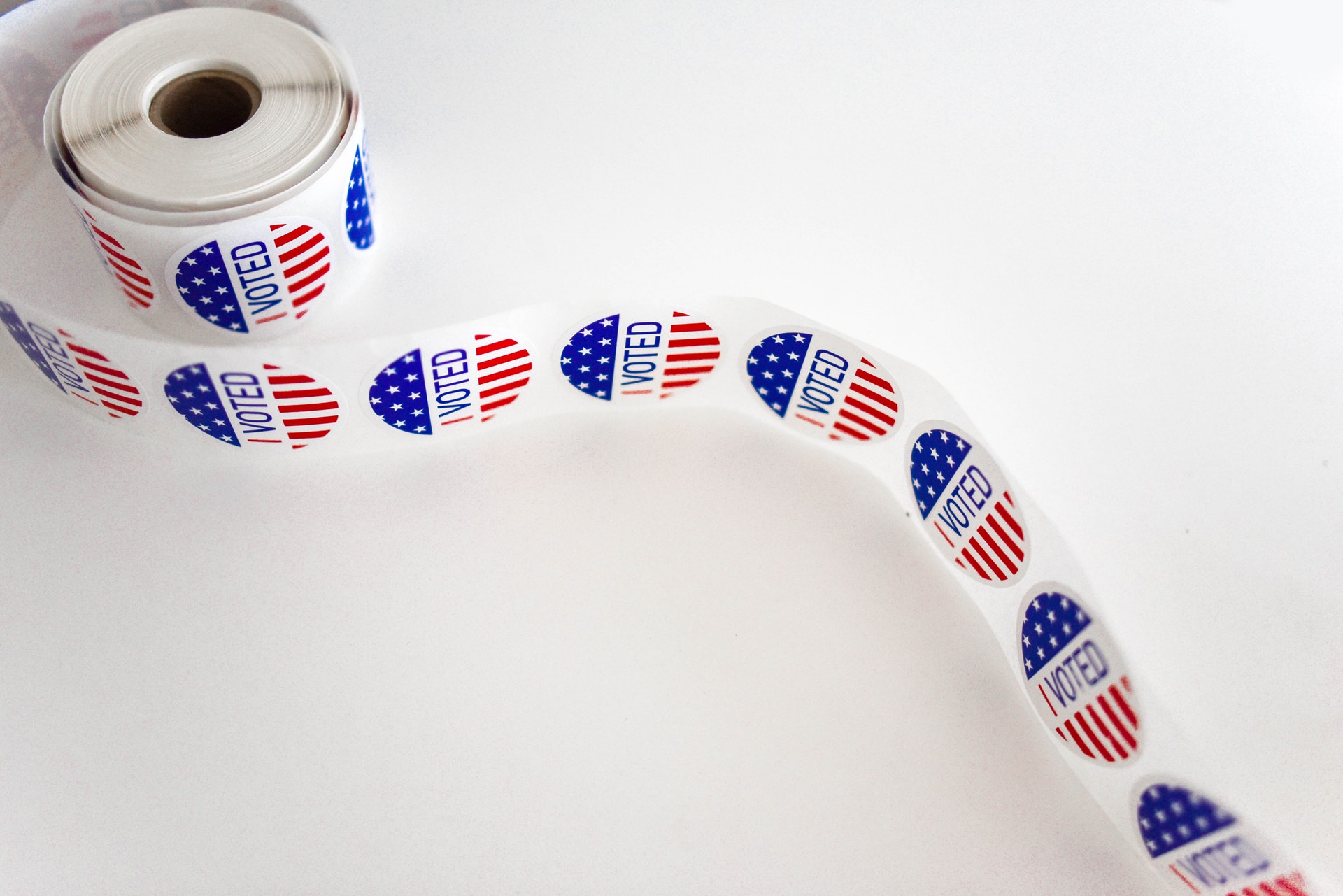Sociology says your vote matters — even if you don’t think so
Social scientist Andrea Jones-Rooy says we need smarter ways to engage people in civic life
Passant Rabie • November 2, 2018

In the lead-up to the midterm elections, people are being bombarded with messages to go out and vote [Credit: Pexels]
Andrea and Akchay have just committed a crime.
They stole a Ferrari, and are both being interrogated separately by the police. They are both faced with a dilemma: should they stay silent and go to jail, or turn in their partner and potentially go free? It’s an illustration of the classic social science conundrum known as “The Prisoner’s Dilemma”.
“I can’t control what you’re doing, but I can think about my options,” says Andrea Jones-Rooy, an independent researcher (and sometime stand-up comedian) with a Ph.D. in political science, at a recent talk held at New York City’s Caveat on why voting is not, strictly speaking, a rational act.
Jones-Rooy argues that voting is instead a social act where the probability of your one vote counting is low, therefore the personal benefit of voting is also low, while the cost of casting your vote is always at a positive.
“People are still voting,” she says. “We shouldn’t be voting, right?”
Just two weeks before the midterm elections kick off, rather than encouraging people to head to the polls, Jones-Rooy questioned audience members’ decision to vote in the first place.
It’s not exactly what you would expect to hear. Instead, in the months and now mere days leading up to the polls, people on social media platforms have been constantly reminding others to vote, and news reports are playing a game of odds between predicting voter turnout and who may actually end up on those seats between Democrats and Republicans. All of this is happening in the shadow of the 2016 presidential elections, where only 58 percent of eligible voters headed to the polls.
Ideally, encouraging people to go out and vote is virtuous and correct – unless you think about voting through the prism of the Prisoner’s Dilemma and the cold mathematics of cost-benefit analysis, says Jones-Rooy, who also does quantitative research for the website FiveThirtyEight.
Citing Anthony Downs’ An Economic Theory of Political Action in a Democracy, Jones-Rooy points out that the probability that one person’s vote is the decisive factor is always small. There’s almost no direct benefit of voting but there is always a cost: the time and effort involved in the voting process.
The situation is analogous to the Prisoner’s Dilemma, she says, because both Jones-Rooy and Akchay, the audience member turned criminal, can choose to cooperate for both of their benefit or choose to protect their own self-interest. Game theory suggests that the temptation for one person to save themselves by selling out the other is greater than the reward that both individuals would get if they both kept silent.
According to Jones-Rooy, voting is a social and strategic exercise whereby one person tries to predict how everyone else will be voting, and bases their own vote on other people’s likelihood of voting with them or against them.
“The ideal outcome is that everyone who I agree with politically goes out to vote, and I stay home,” she says. The temptation would be to save yourself the time and effort associated with voting, while relying on the other person to go out and vote instead.
Putting it in a real life context, Jones-Rooy says that may explain why some people did not go to the polls in 2016 to vote for former presidential nominee Hillary Clinton, thinking that others would even if they did not want her opponent, Donald Trump, to be elected.
Part of the solution, says Jones-Rooy, is to encourage collective action, or a culture of voting.
She refers to Nobel Prize winner Elinor Ostrom’s book, “Governing the Commons: The Evolution of Institutions for Collective Action”, which gives examples of grassroots initiatives as an example of community-led action. Essentially, Ostrom believed that people can act on their own for the greater benefit of their community.
Helping bring her solution to life, Jones-Rooy brought out Ginny Suss, a producer of the women’s march movement that was initiated to advocate for human rights, women’s rights, and immigration reform, among other issues. Suss is also the co-founder of the Resistance Revival Chorus, a women’s chorus that promotes freedom and resistance through their songs.
Through her work, Suss aims to illustrate that the political system is not just reserved for certain people who may know more about it; rather, everyone should participate.
“We’re all allowed to interact with [the political landscape] in different ways,” says Suss. “There are ways for everyone to get involved.”